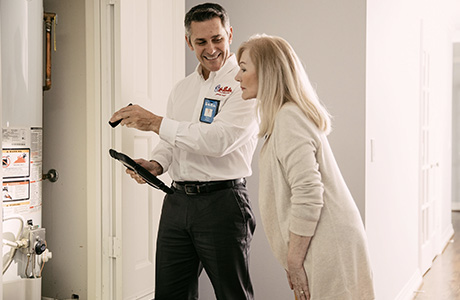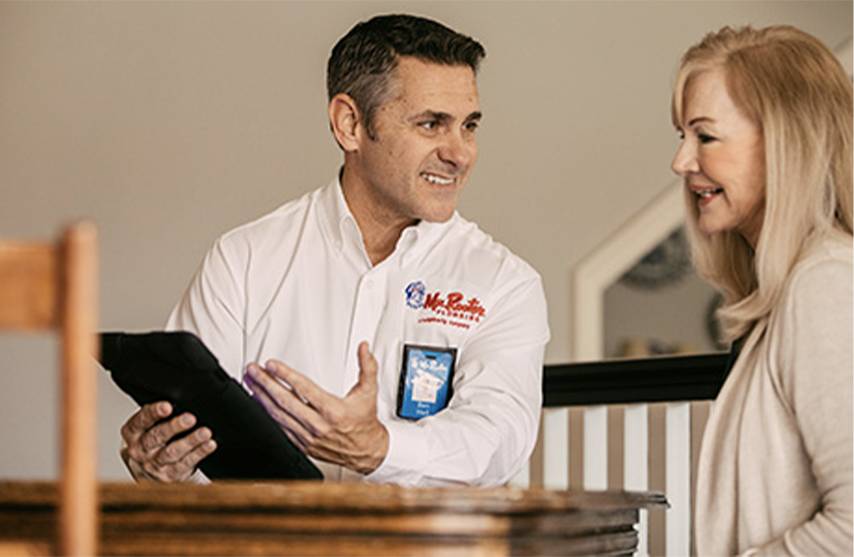
Hot water is a modern luxury we often take for granted until it suddenly disappears during a shower or dishwashing session. If you’ve experienced this frustration, it may be time to call a professional plumbing service like Mr. Rooter Plumbing. Understanding why your hot water runs out and how to prevent it can save you from many inconvenient moments. Here are the common causes behind hot water depletion and practical strategies to ensure a consistent supply.
Sediments like calcium and magnesium can accumulate at the bottom of your water heater’s tank with time. This sediment can act as an insulator, preventing the heating element from warming the water effectively. As a result, you may find that your hot water runs out more quickly. Regularly flush your water heater to remove sediment buildup. Consult your manufacturer’s instructions or a trusted plumber for the recommended frequency.
The size of your water heater tank matters. If your household’s hot water demand exceeds the tank’s capacity, you’ll run out of hot water faster than you’d like. This is especially common in larger families or households with high water consumption. Consider upgrading to a larger system if your hot water demand consistently exceeds the tank’s capacity. Consult with a professional plumber to determine the proper size for your household.
Sometimes, the issue is not the hot water quantity but the temperature. If your water heater’s thermostat is set too low, it can cause lukewarm water or even cold showers. Check your water heater’s thermostat settings and adjust them to a comfortable temperature, typically between 120°F (49°C) and 140°F (60°C).
The dip tube leads cold water to the bottom of the unit, where it’s heated. If the dip tube is damaged, cold water may mix with the hot water near the top, leading to premature cooling of the hot water supply. Regularly inspect the dip tube for any signs of damage or wear and call a water heater repair service to replace it if necessary.
Running out of hot water can be a frustrating experience, but understanding the common causes and preventive measures can help you enjoy a consistent and ample hot water supply. Here are effective ways to prevent hot water depletion.
Schedule regular maintenance with a trusted plumbing service to prevent sediment buildup and ensure your water heater functions efficiently. This includes flushing the tank, inspecting the anode rod, and checking for leaks.

Tankless water heaters, also known as on-demand water heaters, heat water as you use it, eliminating the need for a storage tank. This ensures a continuous hot water supply and reduces the risk of running out.
If you have a large household with high hot water demands, consider upgrading to a larger tank to accommodate your needs adequately. Consult a water heater repair expert to determine the right size for your family.
Addressing common causes of hot water depletion, such as sediment buildup, tank size, thermostat settings, and dip tube issues, can ensure that your daily routines are uninterrupted by cold showers. Contact us at Mr. Rooter Plumbing for top-quality services, including water heater repair, installation, and maintenance.